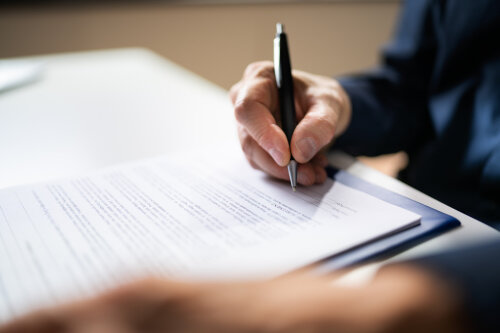Best Accidents & Injuries Lawyers in Timmins
Share your needs with us, get contacted by law firms.
Free. Takes 2 min.
List of the best lawyers in Timmins, Canada
Canada Accidents & Injuries Legal Articles
Browse our 1 legal article about Accidents & Injuries in Canada written by expert lawyers.
- What to Do After a Serious Car Accident in Canada: A Guide
- Most provinces have a 2-year limitation to sue for injury, counted from when you knew or ought to have known you had a claim. Quebec is 3 years. Municipal notice deadlines can be as short as 7-60 days. Auto injury rules vary sharply by province: BC and Quebec use largely... Read more →
About Accidents & Injuries Law in Timmins, Canada
Accidents and injuries law, often referred to as personal injury law, encompasses the legal principles that govern situations where an individual has been injured physically or psychologically due to the negligence or wrongdoing of another party. In Timmins, as in the rest of Canada, this area of law aims to provide relief to injured parties for losses incurred, hold the responsible parties accountable, and deter similar behavior in the future. The law covers a wide range of incidents including car accidents, slip and falls, workplace injuries, and medical malpractice.
Why You May Need a Lawyer
There are several common situations where individuals may require legal help concerning accidents and injuries in Timmins:
- **Car Accidents**: If you've been involved in a car accident in Timmins, legal advice can help you understand your rights, especially if you're not at fault.
- **Slip and Falls**: These incidents can occur on both private and public properties and can lead to serious injuries. A lawyer can help establish liability and pursue compensation.
- **Workplace Injuries**: Navigating workers' compensation claims can be cumbersome, and a lawyer can assist in ensuring you receive the benefits you're entitled to.
- **Medical Malpractice**: Injuries resulting from medical negligence require legal expertise to navigate these complex cases.
- **Insurance Disputes**: Disputes with insurance companies over compensation amounts can benefit greatly from legal intervention.
Local Laws Overview
Key aspects of local laws concerning accidents and injuries in Timmins are shaped by provincial laws in Ontario:
- **Statute of Limitations**: In Ontario, there is typically a two-year limitation period to commence a legal proceeding from the date of the injury or the date when the injury was discovered.
- **No-Fault Insurance**: Ontario operates under a no-fault insurance system, which means that in the case of car accidents, your insurance will pay for your immediate medical expenses regardless of fault.
- **Occupier's Liability**: Property owners have a duty of care to ensure that their premises are safe for visitors. Failing to do so can result in liability under the Occupier’s Liability Act.
- **Negligence**: The foundation for most personal injury claims is the concept of negligence, where the injured party must prove that the defendant owed them a duty of care, breached this duty, and caused an injury resulting in damages.
Frequently Asked Questions
What should I do immediately after an accident?
Seek medical attention right away, even if the injury seems minor. Document the scene and collect evidence, such as photographs and witness contacts, if possible. Report the incident to the relevant authorities and notify your insurance company.
How is compensation determined for personal injury cases?
Compensation is typically determined based on the severity of the injury, the impact on your ability to work, medical expenses, and any other related costs or suffering endured.
What is the role of insurance companies in accident claims?
Insurance companies will evaluate claims to determine compensation amounts. They are generally the primary source of reimbursement in accidents and injuries cases. It's important to remember that their goal is to minimize payouts.
Can I handle a personal injury claim on my own?
While it's possible to handle a claim independently, having an experienced lawyer increases your chances of receiving fair compensation, particularly in more complex cases or disputes with insurance companies.
Do I need to go to court for an accident claim?
Not all cases go to court; many are settled through negotiations. However, if parties cannot agree, a court case may be necessary.
How long does it take to resolve a personal injury claim?
The timeline varies widely depending on the case's complexity and whether it's settled out of court or goes to trial. It can range from a few months to several years.
What are the costs of hiring a personal injury lawyer?
Many personal injury lawyers work on a contingency fee basis, meaning they only get paid if you win your case. It's crucial to discuss fees upfront during the initial consultation.
What if the other party’s insurance company contacts me?
It's generally advised not to provide any statements or sign documents without consulting your lawyer. Insurance adjusters may use your statements to minimize the claim.
Can I claim for future medical expenses and lost wages?
Yes, you can claim for future expenses if they're directly related to the injury. Proper documentation and sometimes expert testimony will be necessary to establish these claims.
How does the court determine if someone was negligent?
The court considers various factors, including whether the defendant had a duty of care, breached that duty, and directly caused the injury-considering what a reasonable person would have done in similar circumstances.
Additional Resources
- **Legal Aid Ontario**: Provides access to justice for low-income individuals by offering duty counsel services and legal clinics.
- **Ontario Ministry of Labour**: Provides information and support related to workplace injuries and occupational health and safety.
- **Timmins & District Hospital**: For medical records and reports essential in injury claims.
- **Insurance Bureau of Canada**: Offers information regarding automobile, home, and business insurance in Canada.
Next Steps
If you decide to seek legal assistance, here are the steps you should take:
- **Consultation**: Contact a qualified personal injury lawyer for an initial consultation to discuss your case specifics.
- **Documentation**: Gather all relevant documentation, including medical records, accident reports, and any insurance correspondence.
- **File a Claim**: With your lawyer's assistance, file a claim with the insurance company or initiate legal proceedings if necessary.
- **Monitoring Progress**: Stay in communication with your lawyer to monitor the progress of your case and any necessary responses to new developments or correspondence from involved parties.
By understanding your rights and responsibilities in accidents and injuries cases, you can better navigate the complexities of legal proceedings and improve your chances of recovering fair compensation for your damages.
Lawzana helps you find the best lawyers and law firms in Timmins through a curated and pre-screened list of qualified legal professionals. Our platform offers rankings and detailed profiles of attorneys and law firms, allowing you to compare based on practice areas, including Accidents & Injuries, experience, and client feedback.
Each profile includes a description of the firm's areas of practice, client reviews, team members and partners, year of establishment, spoken languages, office locations, contact information, social media presence, and any published articles or resources. Most firms on our platform speak English and are experienced in both local and international legal matters.
Get a quote from top-rated law firms in Timmins, Canada — quickly, securely, and without unnecessary hassle.
Disclaimer:
The information provided on this page is for general informational purposes only and does not constitute legal advice. While we strive to ensure the accuracy and relevance of the content, legal information may change over time, and interpretations of the law can vary. You should always consult with a qualified legal professional for advice specific to your situation.
We disclaim all liability for actions taken or not taken based on the content of this page. If you believe any information is incorrect or outdated, please contact us, and we will review and update it where appropriate.
Browse accidents & injuries law firms by service in Timmins, Canada
Timmins, Canada Attorneys in related practice areas.









